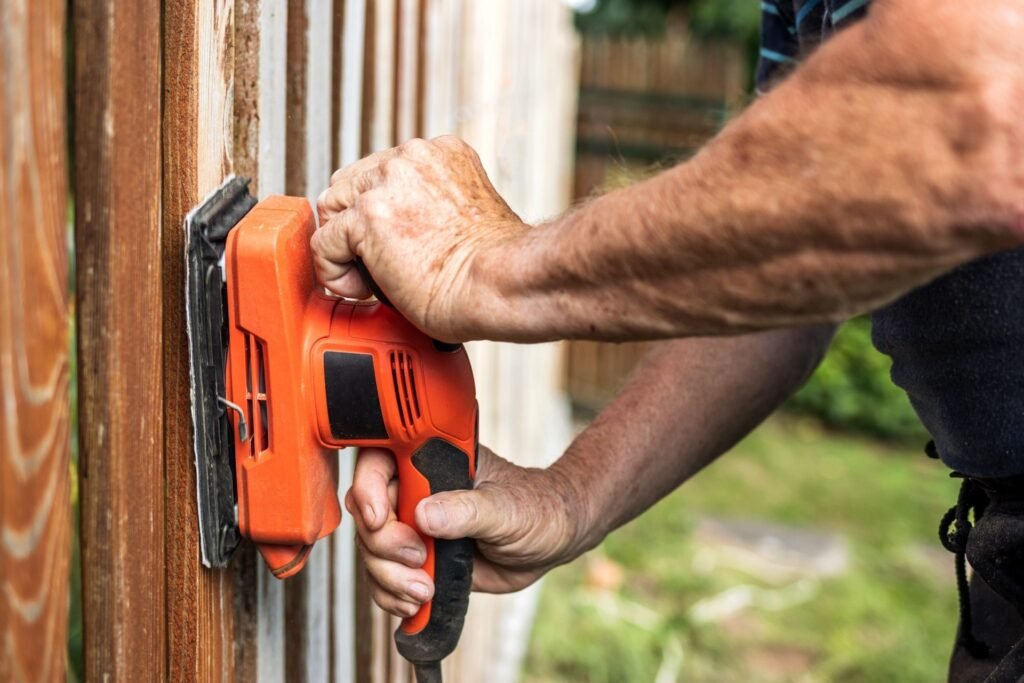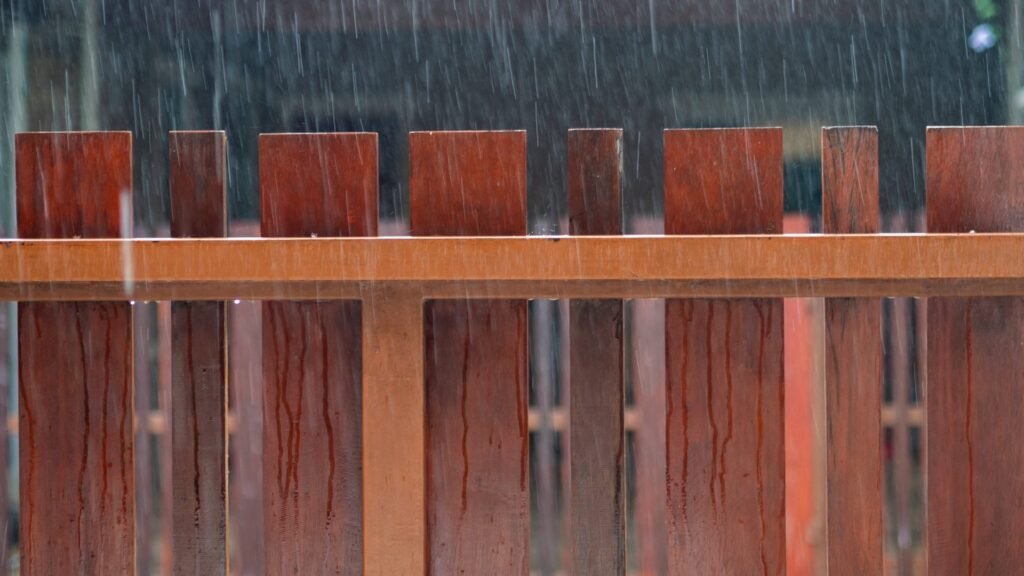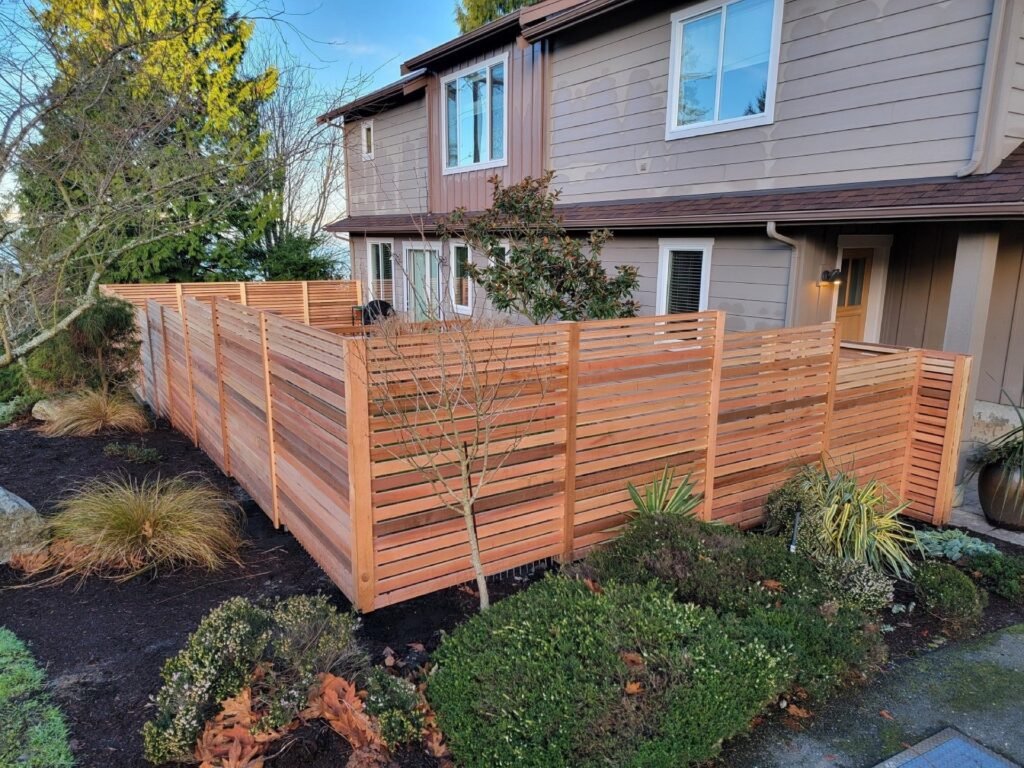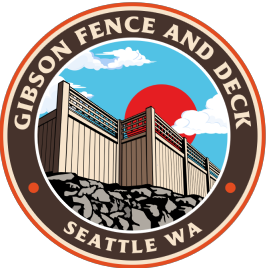How Much Does it Cost to Stain a Fence?

Staining your fence is not just a matter of enhancing its appearance, it also serves as crucial protection against the elements, helping to extend your fence’s lifespan and maintain your outdoor space in good condition. Whether you’re considering a DIY fence staining project or planning to hire fence staining professionals, understanding the financial investment involved is essential. This article will provide a detailed overview of the average costs of staining a fence, the factors that influence these costs, and tips on whether to tackle the job yourself or seek professional help. By the end, you’ll be well-equipped to make an informed decision on how to best maintain your wooden deck and fence, ensuring lasting quality and beauty.

Average Costs of Staining a Fence
Whether you opt for the expertise of professional fence staining services or choose the hands-on route of a DIY project, understanding the associated costs is crucial for planning and budgeting your fence maintenance. This section will detail both approaches, highlighting the price ranges and key considerations to help you make the best decision for your needs.

Professional Fence Staining Costs
Hiring professional fence staining costs typically ranges between $225 and $600 for a standard 150-foot fence. This cost covers labor, the stain itself, and any necessary preparations such as power washing or minor fence repairs. Professionals bring expertise and efficiency to the task, ensuring a uniform application and lasting results.
Benefits of Hiring Professionals
Quality and Expertise: Professionals have the skills to handle different wood types and stain products, ensuring optimal results and extending the life of cedar fences and hardwood fences all the same.
Efficiency: With professional tools and experience, the job can be completed faster and with minimal disruption to your daily routine.
Warranty: Many services include a warranty, providing peace of mind that the work is protected against potential issues.

DIY Fence Staining Costs
Undertaking a DIY fence staining project can be more cost-effective, with expenses typically ranging from $50 to $150 for a standard 150-foot fence. This estimate includes the cost of materials like stain and brushes but does not account for equipment rentals such as power washers.
Considerations for DIY Staining
Time and Effort: DIY projects require significant time and effort, especially in preparation and application.
Equipment Needs: You may need to rent or purchase specific tools, which can increase the overall cost.
Skill Level: Proper technique is crucial for even coverage and professional-looking results. Mistakes can be costly and difficult to correct.
Factors Affecting Fence Staining Costs

Pre-Staining Tasks
Proper preparation typically involves costs for cleaning and sanding, which can significantly affect the overall costs of your staining project.
Cleaning: Professional power washing costs range from $0.10 to $0.30 per square foot, or $15 to $45 for a 150-foot fence. This step is crucial to remove dirt, mildew, and old stain residues, ensuring that the new stain adheres properly.
Sanding: The cost for sanding a fence ranges from $0.50 to $2.00 per square foot, depending on the condition of the fence and the extent of sanding needed. Sanding is essential for smoothing the fence surface and is particularly important for older fences or those with peeling surfaces.
These preparation steps not only contribute to the longevity of the stain but also ensure a professional and even appearance.

Type of Stain
Choosing the right type of stain will impact both the appearance and the cost of your fence staining project.
Water-Based Stain: These stains are priced between $20 and $40 per gallon. They offer easy cleanup and quick drying times, are less toxic, and provide good resistance to weathering.
Oil-Based Stains: Costing about $20 to $60 per gallon, oil-based stains are valued for their deep penetration and durability, though they require longer drying times and emit a stronger odor.
Solid Stains: Priced around $30 to $50 per gallon, solid stains provide the most opacity, hiding the wood grain but offering the best UV protection.
Semi-Transparent and Transparent Stains: These enhance the wood’s natural beauty and cost $25 to $45 per gallon. They protect the wood while requiring more frequent reapplication to maintain their look.
Each type of stain offers distinct advantages and costs, affecting the overall investment and maintenance schedule of your fencing project.

Additional Considerations
Labor Costs
Labor costs for staining a fence can vary significantly, generally ranging from $20 to $35 per hour. Factors that can increase these costs include the complexity of the project, the geographic location, and the condition of the fence. Professional services may also adjust rates based on the speed and quality of the work provided.
Fence Refinishing and Fence Staining Services
Choosing between fence refinishing and simple staining depends on the condition of the fence, with costs varying accordingly. Full refinishing is typically necessary for older or more damaged fences and can cost significantly more than a basic staining job due to the extensive labor and materials required. Simple staining might be sufficient for newer or well-maintained fences, offering a more cost-effective solution.
Long-Term Maintenance
Investing in regular maintenance for your deck or fence can significantly reduce long-term costs, enhancing the structure’s longevity. Regular staining and sealing can prevent the costly repairs that come from water damage, wood rot, and UV degradation. This preventative approach not only saves money over time but also keeps your fence looking great year after year.

DIY vs. Hiring Professionals
Undertaking a DIY project typically costs between $50 and $150 for a standard 150-foot fence, while professional services may range from $225 to $600. This comparison highlights the potential savings of a DIY approach but also underscores the benefits of professional quality and efficiency.
Benefits of Hiring Professionals
Professional Quality: Experts ensure the stain is applied evenly and penetrates deeply, which can be challenging for DIY enthusiasts to achieve.
Efficiency: Professionals can complete the job more quickly due to their experience and specialized equipment, minimizing the disruption to your daily life.
Longevity and Warranty: Professional services often come with a warranty, ensuring the longevity of the stain and providing peace of mind.
Considerations for DIY Projects
Cost Savings: The most apparent advantage of DIY staining is the potential for cost savings on labor, which can be considerable.
Personal Satisfaction: Completing the project yourself can offer a sense of accomplishment and allow for complete control over the process.
Time and Skill: DIY projects require time and a certain level of skill to ensure the quality of the work, which might extend the duration of the project compared to professional execution.

Staining Your Fence in the Pacific Northwest is No Joke
In the Pacific Northwest, where moisture is a constant factor, properly staining your fence is crucial to protect the natural wood from the weather and other potential impacts like carpenter bees to extend the fence’s lifespan. The region’s high humidity and frequent rain can lead to wood decay, mold growth, and other moisture-related damages. Applying a fresh coat of stain offers essential moisture protection, preserving the natural wood look and integrity of your wood fence.
Key Steps in the Fence Staining Process
Fence Cleaning: Thoroughly power wash the fence to remove dirt, algae, and existing paint or stains, which is critical for the new stain to adhere properly. Fence cleaning is a vital part of the prep work needed to ensure a clean surface.
Fence Sanding: Light sanding helps smooth out the fence’s surface, removing any splinters and rough patches. This step is especially important for fence restoration, preparing the wood for staining.
Choosing the Right Stain: Select a solid stain or water based stains depending on your preference for appearance and durability. Stain prices can vary, so consider the total cost involved and how much stain is needed per square foot.
Applying the Stain: Use a paint sprayer or brushes to apply the stain evenly. The fence staining process should include careful application to ensure even coverage and deep penetration of the wood fibers.
Regular Maintenance: Routine fence maintenance includes checking for wear and touch-ups. This ongoing care helps save money in the long term by avoiding costly fence repairs and frequent reapplications.
Regional Considerations
Fence Size and Configuration: In the Pacific Northwest, the fence size and layout can affect how much does it cost to maintain and stain your fence. Larger fe or those with intricate designs may require more stain and more extensive prep work.
Costs and Contractors: The national average cost to stain a fence varies, but local rates in the Pacific Northwest might be higher due to environmental considerations. Hiring a general contractor experienced with local conditions can help manage these project costs and additional costs effectively.

We Want to Help You Maintain Your Fence
Staining your fence is an investment in both the appearance and longevity of your property. The costs involved can vary widely, depending on the size of your fence, the type of stain used, and whether you choose to DIY the project or hire professionals. Remember, preparation tasks like cleaning and sanding are crucial for ensuring the best results, and the type of stain you select will influence both the project’s cost and the frequency of maintenance required.
If you’re considering staining your fence but are unsure about the best approach for your specific needs, Gibson Fence and Deck is here to help. We offer professional advice and services tailored to your requirements. Contact us today for a detailed quote and let us help you enhance the beauty and durability of your fence with our expert staining services.
